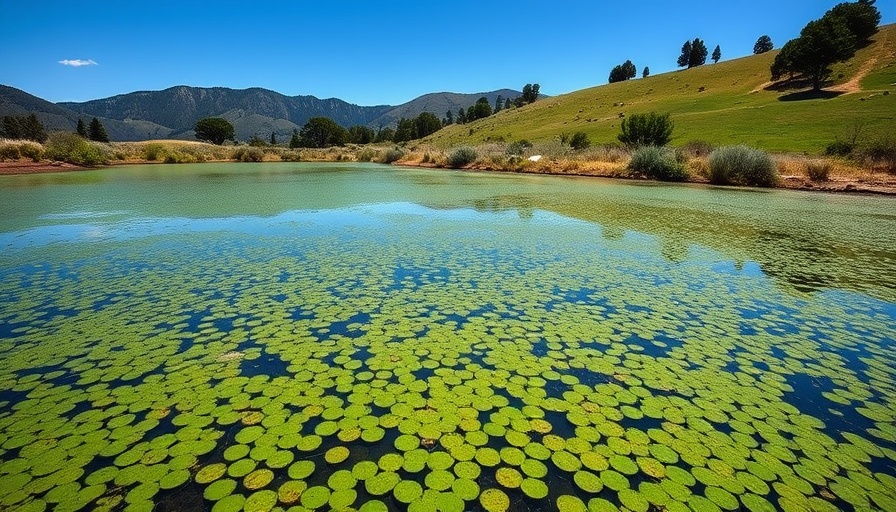
The Sustainable Power of Microalgae in Wastewater Treatment
Scientists have unveiled a groundbreaking method of treating domestic sewage using microalgae—tiny, green organisms often dismissed as mere “pond scum.” This low-tech, eco-friendly process significantly reduces the need for expensive wastewater treatment facilities, particularly in rural areas where water sanitation remains a pressing issue. A recent study highlights how using microalgae can clean sewage in places like Limpopo Province, South Africa, demonstrating a much-needed alternative amidst growing environmental challenges.
Addressing the Sanitation Crisis
According to studies, many rural communities in Africa face a severe sanitation crisis. Aging, overloaded, or broken wastewater systems often lead to untreated sewage contaminating water bodies, posing health risks to both ecosystems and local populations. Co-author of the study, Yolandi Schoeman, emphasizes that traditional systems are not only costly but energy-intensive—which is problematic in regions with limited infrastructure and unreliable electricity. Here lies the potential of microalgae: a sustainable solution that requires neither vast resources nor complex technology.
How Microalgae Works: Nature’s Water Purifier
In this ingenious method, microalgae purify water by promoting aerobic bacteria growth through photosynthesis. This process effectively breaks down organic waste, including human sewage and food residues. During a pilot study, researchers introduced microalgae in the ponds at the Motetema Wastewater Treatment Works. The outcome was impressive—microalgae successfully cleaned the sewage from approximately 1,560 homes without needing any mechanical treatment or harsh chemical additives.
Environmental Impact and the Future of Wastewater Management
Beyond their immediate application, microalgae carry broader environmental implications. Large-scale wastewater treatments are often cited as significant contributors to climate change due to their energy consumption. By shifting to microalgae systems, communities can mitigate their carbon footprint and enhance public health simultaneously. Moreover, harnessing local natural resources in innovative ways points to a future where man and nature coexist sustainably.
Linking Microalgae to Broader Environmental Initiatives
This microalgae initiative resonates with ongoing global efforts to combat climate change and promote sustainable practices. With increasing awareness of environmental issues like microplastics and coral reef degradation, the demand for greener technologies has never been higher. Entrepreneurs in the eco-tourism and boutique hospitality sectors can incorporate microalgae treatment systems into their sustainable lodging practices, enhancing their appeal to the environmentally-conscious traveller while also contributing positively to their local ecosystems.
The Role of Education and Raising Awareness
Education plays a crucial role in this narrative. Local communities, particularly those in rural areas, must be informed about the benefits of adopting microalgae systems for wastewater treatment. Initiatives focusing on climate awareness and sustainability should highlight how these natural systems can significantly contribute to environmental health and personal well-being. Engaging with local governments and NGOs could further propagate these technologies, ensuring broad acceptance and implementation.
This simple, natural solution to wastewater treatment offers dual advantages: improving public health and reducing environmental impact. For boutique hospitality professionals, integrating microalgae systems can enhance operational sustainability, attract eco-conscious guests, and contribute to a cleaner planet. Spa opportunities abound, where guests can engage in hands-on activities related to microalgae cultivation, turning trash into treasure and fostering a deeper connection with nature.
In a world increasingly burdened by environmental challenges, the adoption of microalgae for wastewater treatment stands as a beacon of hope. Solutions like these remind us that innovative approaches, drawing from nature’s wisdom, pave a sustainable pathway toward a better future.
 Add Row
Add Row  Add
Add 




 Add Row
Add Row  Add
Add 

Write A Comment